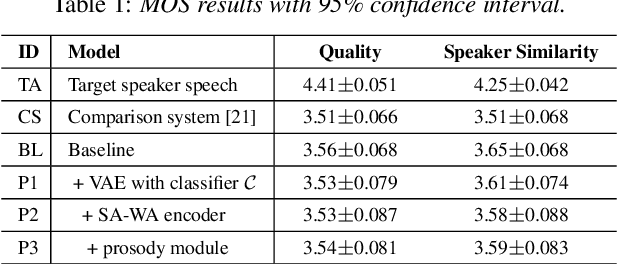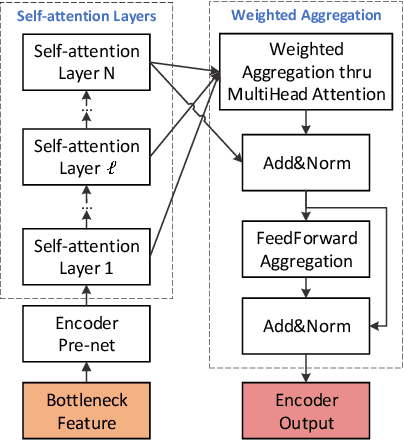Enriching Source Style Transfer in Recognition-Synthesis based Non-Parallel Voice Conversion
Paper and Code
Jun 26, 2021



Current voice conversion (VC) methods can successfully convert timbre of the audio. As modeling source audio's prosody effectively is a challenging task, there are still limitations of transferring source style to the converted speech. This study proposes a source style transfer method based on recognition-synthesis framework. Previously in speech generation task, prosody can be modeled explicitly with prosodic features or implicitly with a latent prosody extractor. In this paper, taking advantages of both, we model the prosody in a hybrid manner, which effectively combines explicit and implicit methods in a proposed prosody module. Specifically, prosodic features are used to explicit model prosody, while VAE and reference encoder are used to implicitly model prosody, which take Mel spectrum and bottleneck feature as input respectively. Furthermore, adversarial training is introduced to remove speaker-related information from the VAE outputs, avoiding leaking source speaker information while transferring style. Finally, we use a modified self-attention based encoder to extract sentential context from bottleneck features, which also implicitly aggregates the prosodic aspects of source speech from the layered representations. Experiments show that our approach is superior to the baseline and a competitive system in terms of style transfer; meanwhile, the speech quality and speaker similarity are well maintained.
 Add to Chrome
Add to Chrome Add to Firefox
Add to Firefox Add to Edge
Add to Edge